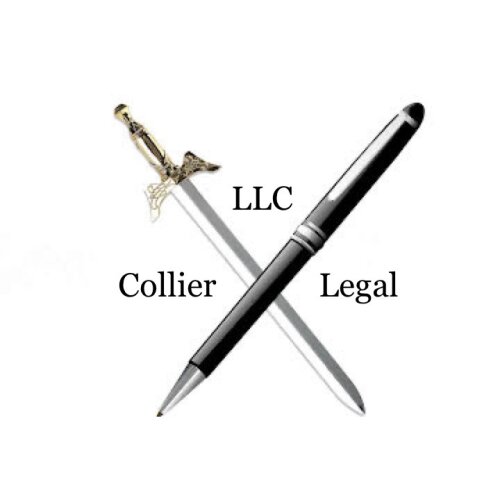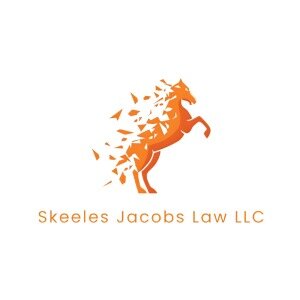Best Business Lawyers in Ohio
Share your needs with us, get contacted by law firms.
Free. Takes 2 min.
Or refine your search by selecting a city:
List of the best lawyers in Ohio, United States
United States Business Legal Questions answered by Lawyers
Browse our 1 legal question about Business in United States and read the lawyer answers, or ask your own questions for free.
- How do I legally protect my idea before selling or licensing it to a company?
- I have a makeup product idea that I want to sell or license, not the product itself. It is influenced by a product that was recently launched. Therefore, I want to sell/license to the company that launched said product. After some research, I contacted a patent attorney who explained that... Read more →
-
Lawyer answer by P.O OHIKHENA & Co
Good day,A patent will not be applicable since it's still an idea. You can go into an MOU(Memorandum of understanding) with the said company and also an NDA.You can contact me for my insight. Visit our profile and send us...
Read full answer
United States Business Legal Articles
Browse our 2 legal articles about Business in United States written by expert lawyers.
- NY 2026 Corp Tax: Thresholds & Franchise
- For tax years beginning on or after January 1, 2026, New York businesses will only be required to make estimated tax payments if their expected New York tax (including any MTA surcharge) is at least $5,000, up from $1,000. Many small and some mid-sized New York corporations and S corporations... Read more →
- Texas AI Compliance 2026 United States Data Privacy Rules
- By 2026, Texas agencies and many businesses that build, host, or support AI tools for government or consumer-facing decisions will face stricter disclosure and anti-discrimination requirements. Texas is pairing its new data privacy framework (Texas Data Privacy and Security Act) with AI-specific rules that target "algorithmic discrimination" in areas like... Read more →
About Business Law in Ohio, United States
Business law in Ohio encompasses the statutes, regulations, and legal principles that govern the formation, operation, and dissolution of businesses within the state. Whether starting a small business, growing an established company, or navigating complex transactions, understanding the local business landscape is essential for regulatory compliance and long-term success. Ohio offers a dynamic economic environment that attracts a wide range of entrepreneurs and organizations, from startups to large corporations.
Why You May Need a Lawyer
Legal assistance is invaluable for individuals and companies dealing with business matters in Ohio. Common situations where legal help can be beneficial include choosing the right business structure, drafting and negotiating contracts, ensuring regulatory compliance, handling employment issues, resolving disputes, and managing intellectual property rights. Experienced business attorneys can guide clients through business formation, licensing, mergers and acquisitions, litigation, and dissolution. Legal counsel ensures that your business operations align with Ohio law, potentially saving you from costly mistakes in the future.
Local Laws Overview
Several specific Ohio laws impact businesses operating within the state. Business entities such as corporations, limited liability companies (LLCs), and partnerships are governed by the Ohio Revised Code, which outlines procedures for formation, governance, reporting, and dissolution. Ohio law also features unique requirements for business licenses and permits, depending on your industry and location. Employment laws in Ohio address issues such as workplace safety, anti-discrimination, and wage regulations. Additionally, businesses must comply with state tax laws, zoning ordinances, and regulations related to consumer protection and advertising. Staying current with local, state, and federal requirements is crucial for lawful and successful operations in Ohio.
Frequently Asked Questions
What are the most common types of business structures in Ohio?
The most common business structures in Ohio include sole proprietorships, partnerships, limited liability companies (LLCs), and corporations. Each type has its own benefits, such as liability protection and tax treatment.
How do I register a new business in Ohio?
You typically register a business with the Ohio Secretary of State. The process involves selecting a business name, choosing an entity type, and filing the necessary formation documents. Additional licenses or permits may be required depending on your business activity.
What legal documents are needed to start a business in Ohio?
Key documents may include articles of incorporation or organization, an operating agreement or bylaws, federal and state tax identification numbers, and relevant business licenses or permits.
Do I need a business license to operate in Ohio?
Many businesses need at least one type of license or permit to operate legally in Ohio. The requirements depend on your business’s industry, location, and activities.
How are business disputes resolved in Ohio?
Many disputes can be resolved through negotiation or mediation, but some may require litigation in Ohio’s courts. Alternative dispute resolution methods are commonly used to avoid lengthy court processes.
What employment laws should Ohio businesses be aware of?
Businesses must comply with state and federal labor laws, including those governing minimum wage, overtime, anti-discrimination, workplace safety, and employee classification.
How are business taxes handled in Ohio?
Ohio businesses may be subject to several taxes, including the Commercial Activity Tax (CAT), sales tax, and state income tax. Proper registration and compliance with the Ohio Department of Taxation are essential.
Can I operate my business from my home in Ohio?
In many cases, yes, but you may need to comply with local zoning regulations, HOA rules, and obtain business permits or licenses.
How do intellectual property laws apply to Ohio businesses?
Intellectual property rights such as trademarks, copyrights, and patents are protected by federal law but also have state-level considerations. Registering and enforcing IP rights helps protect your brand and products.
What should I include in a business contract?
A comprehensive business contract should clearly outline the parties involved, terms and conditions, payment arrangements, dispute resolution methods, confidentiality provisions, and signatures.
Additional Resources
There are several resources available for business owners and operators in Ohio seeking legal guidance. Helpful organizations include the Ohio Secretary of State’s office for business filings and registration, the Ohio Department of Taxation for state tax information, the local chamber of commerce for community support, and local Small Business Development Centers for business planning advice and resources. Legal aid organizations and the Ohio State Bar Association can help individuals and business owners find qualified attorneys.
Next Steps
If you need legal assistance for your business in Ohio, start by gathering relevant documents and outlining your specific needs or concerns. Research reputable business attorneys in your area who are familiar with Ohio laws and your industry. Schedule consultations to discuss your options and understand potential costs. Consult trusted resources and governmental agencies for additional information. Taking proactive steps with qualified legal support can lay a solid foundation for the success and protection of your business endeavors.
Lawzana helps you find the best lawyers and law firms in Ohio through a curated and pre-screened list of qualified legal professionals. Our platform offers rankings and detailed profiles of attorneys and law firms, allowing you to compare based on practice areas, including Business, experience, and client feedback.
Each profile includes a description of the firm's areas of practice, client reviews, team members and partners, year of establishment, spoken languages, office locations, contact information, social media presence, and any published articles or resources. Most firms on our platform speak English and are experienced in both local and international legal matters.
Get a quote from top-rated law firms in Ohio, United States — quickly, securely, and without unnecessary hassle.
Disclaimer:
The information provided on this page is for general informational purposes only and does not constitute legal advice. While we strive to ensure the accuracy and relevance of the content, legal information may change over time, and interpretations of the law can vary. You should always consult with a qualified legal professional for advice specific to your situation.
We disclaim all liability for actions taken or not taken based on the content of this page. If you believe any information is incorrect or outdated, please contact us, and we will review and update it where appropriate.
Browse business law firms by service in Ohio, United States
Ohio, United States Attorneys in related practice areas.
Browse business law firms by city in Ohio
Refine your search by selecting a city.











